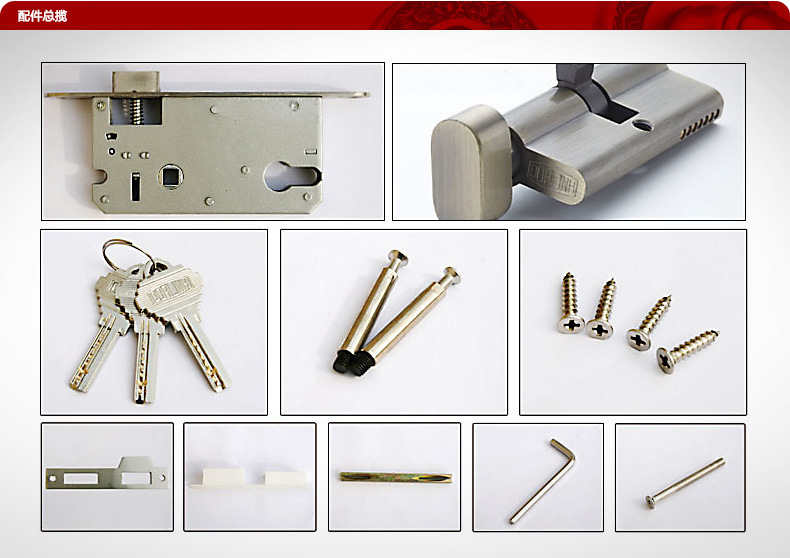Mass production and quality control of industrial locks
I. Introduction
With the development of social economy and the improvement of people's living standards, the demand for security is also increasing. Among all kinds of security facilities, industrial locks are favored for their high reliability and safety, and their applications in industrial production are becoming more and more extensive. However, how to realize the efficient mass production of industrial locks and ensure their quality has become a problem that needs in-depth study.
Second, the mass production of industrial locks
1. Design optimization: In the design stage, the rationality and manufacturability of product structure should be fully considered to reduce the difficulty and cost of subsequent production. At the same time, it is necessary to consider the different needs of different customers and provide diversified product choices as much as possible.
2. Mold development: The production efficiency and product quality stability can be greatly improved through precision mold processing technology. In addition, attention should also be paid to regular maintenance of equipment to extend its service life.
3. Automated production line construction: The use of automated production equipment can significantly improve work efficiency and reduce quality problems caused by human factors. For example, robot welding, assembly and other processes are used to replace the traditional manual operation mode.
4. Material management: ensure that raw materials and spare parts meet the standard requirements, and establish a perfect traceability system to quickly locate the causes when problems occur.
Third, the quality control measures
1. Incoming inspection: strictly inspect all raw materials or accessories entering the factory to ensure that they meet the requirements of relevant standards and technical specifications.
2. Production process monitoring: through real-time monitoring of key process parameters, Identify potential risk points in time and take corresponding corrective measures to prevent unqualified products from flowing into the next process.
Identify potential risk points in time and take corresponding corrective measures to prevent unqualified products from flowing into the next process.
3. Finished product testing: make a detailed finished product testing plan, including visual inspection, mechanical performance testing and environmental adaptability evaluation; According to customer's requirements, special items can be added, such as damage prevention test and corrosion resistance test.
4. Customer feedback mechanism: Establish effective after-sales support channels to collect users' opinions and suggestions, and timely adjust production technology to improve existing product defects.
IV. Conclusion
To sum up, the mass production of industrial locks involves not only the application of advanced technology and equipment, but also a process involving many comprehensive considerations. Only by constantly exploring and innovating can we meet the new challenges brought about by market changes. At the same time, strengthening internal process control is also one of the most important links, which will directly affect whether the enterprise can provide high-quality products and services to customers continuously and stably.
Rec. Prods.
Tags:
Addresses:https://tepinji.com/Machi/2047.html



